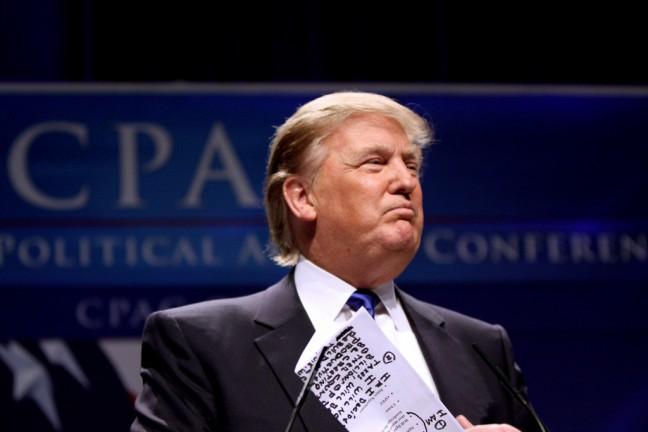This week, I fear we’re talking about the wrong protestors.
Although the NFL #TakeAKnee protest is deserving of attention, Thursday has marked the second occasion this year that protestors against Turkish President Recep Tayyip Erdogan have been beaten on American soil.
Last May, protestors assembled outside of the Turkish ambassador’s residence in Washington, D.C. during a visit by Erdogan himself. Members of Erdogan’s security team rushed toward and proceeded to assault the demonstrators. Video footage shows the president looking on. Nine people were hospitalized.
While the State Department was quick to condemn the attack, President Donald Trump had other opinions. Last week, he praised the Turkish President as a “friend” and gushed, “I think now we’re as close as we’ve ever been.” Erdogan even claimed in a recent interview that the president called him to apologize for the May incident.
Erdogan is a strongman who isn’t fond of dissidents. In 2013, when protestors settled in Gezi Park to oppose plans to raze a local square and replace it with a shopping mall, Erdogan ordered the police to violently disperse the activists and thereafter restricted internet use.
In 2016, the Turkish government seized a newspaper and currently imprisons hundreds of journalists on trumped-up terrorism charges. In April, Erdogan forced a national vote on a referendum to expand his executive powers and abolish the Prime Minister position within the Turkish government. It passed narrowly, but not without concerns about “irregularities” in the vote. President Trump even called to congratulate him on his victory.
This past week, President Trump gave a speech to the United Nations. It was exactly the type of foreign policy speech one would expect from this president. Media reports tended to focus on the president’s use of the insult “Rocket Man” to describe North Korean dictator Kim Jong Un. The beginning of the speech was more telling.
In it, the president spoke about the importance of a nation’s sovereignty: “We do not expect diverse countries to share the same cultures, traditions, or even systems of government. But we do expect all nations to uphold these two core sovereign duties: to respect the interests of their own people and the rights of every other sovereign nation… Our government’s first duty is to its people, to our citizens — to serve their needs, to ensure their safety, to preserve their rights and to defend their values. As president of the United States, I will always put America first, just like you, as the leaders of your countries will always, and should always, put your countries first.”
The word “sovereignty” was so central to the theme of the speech that it appeared a staggering 21 times throughout. It builds upon Secretary of State Rex Tillerson’s recent admission that America needs to separate human rights from foreign policy.
“Sovereignty” is the president’s justification for his “America First” foreign policy vision, one as incoherent as it is inconsistent.
In that very same speech to the UN, President Trump lambasted Iran’s theocratic regime, Venezuela’s socialist dictatorship and the tyrannical rule of Kim Jong Un. Missing were mentions of the current anti-Muslim ethnic cleansing in Myanmar, Putin’s physical intrusions into Ukraine and electronic incursions into other nation’s elections and the ascending dictatorship of Erdogan — all of which violate, in some way, shape or form, the president’s stated “two core sovereign duties” of every country.
The U.S. is the leader of the free world. It is in America’s interest to coordinate the international fight against terrorism, confront humanitarian crises and promote stable governments when possible. As the world’s largest economic and military power, America has a unique responsibility in preserving the world order created after World War II and nourished after the decimation of the Berlin Wall.
“Respect sovereignty” is a nice phrase to use in front of the United Nations, until one recognizes that international affairs are interconnected. What happens in the streets of Istanbul has a funny way of repeating itself in front of the Turkish Ambassador’s residence in D.C.
It is embarrassingly easy for the president to condemn a free agent who isn’t playing football this season. It should be just as easy to condemn a strongman whose cronies are beating protestors in your country, even if you think he’s your friend.
Zach Urisman ([email protected]) is a senior majoring in finance.








